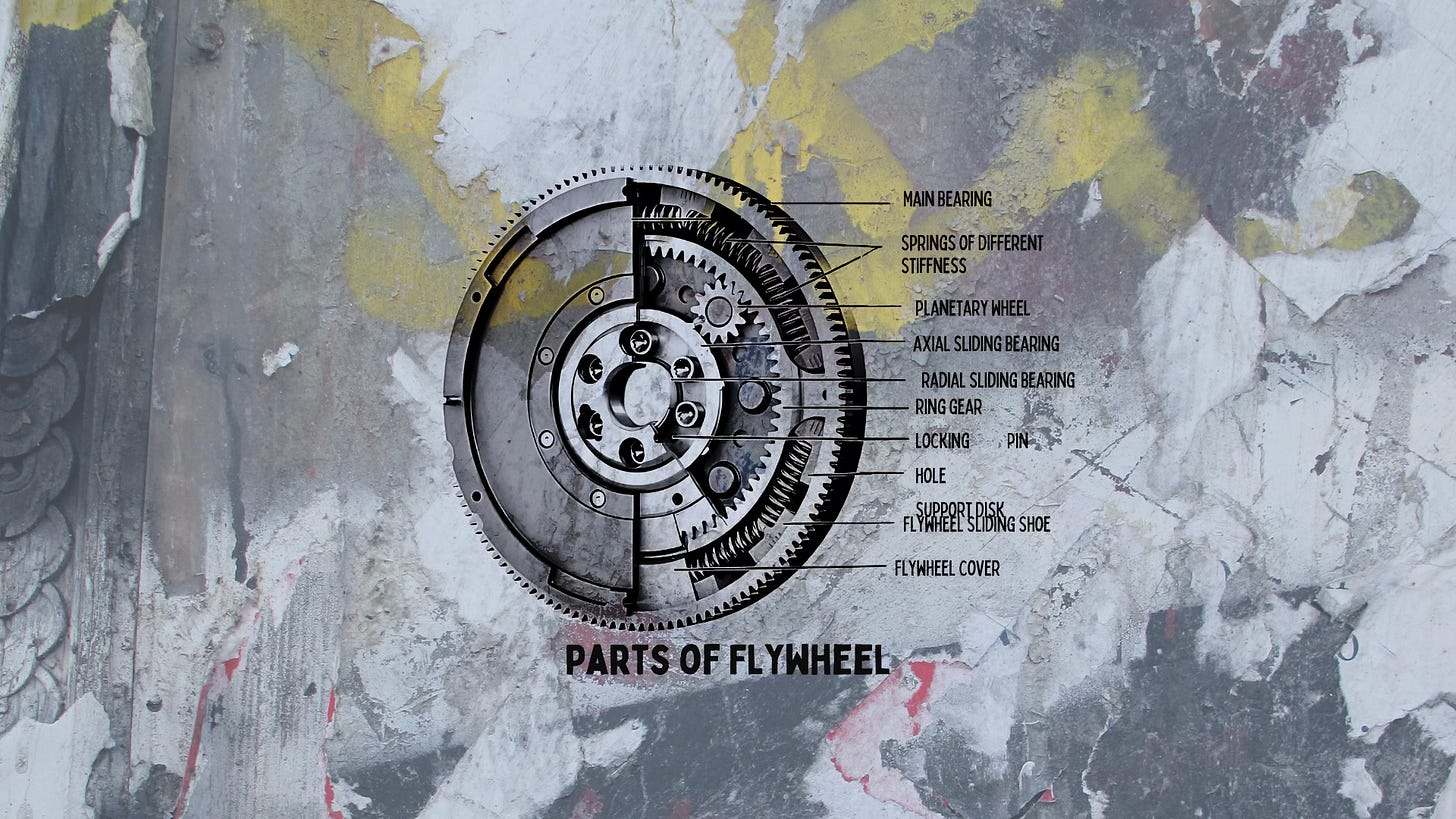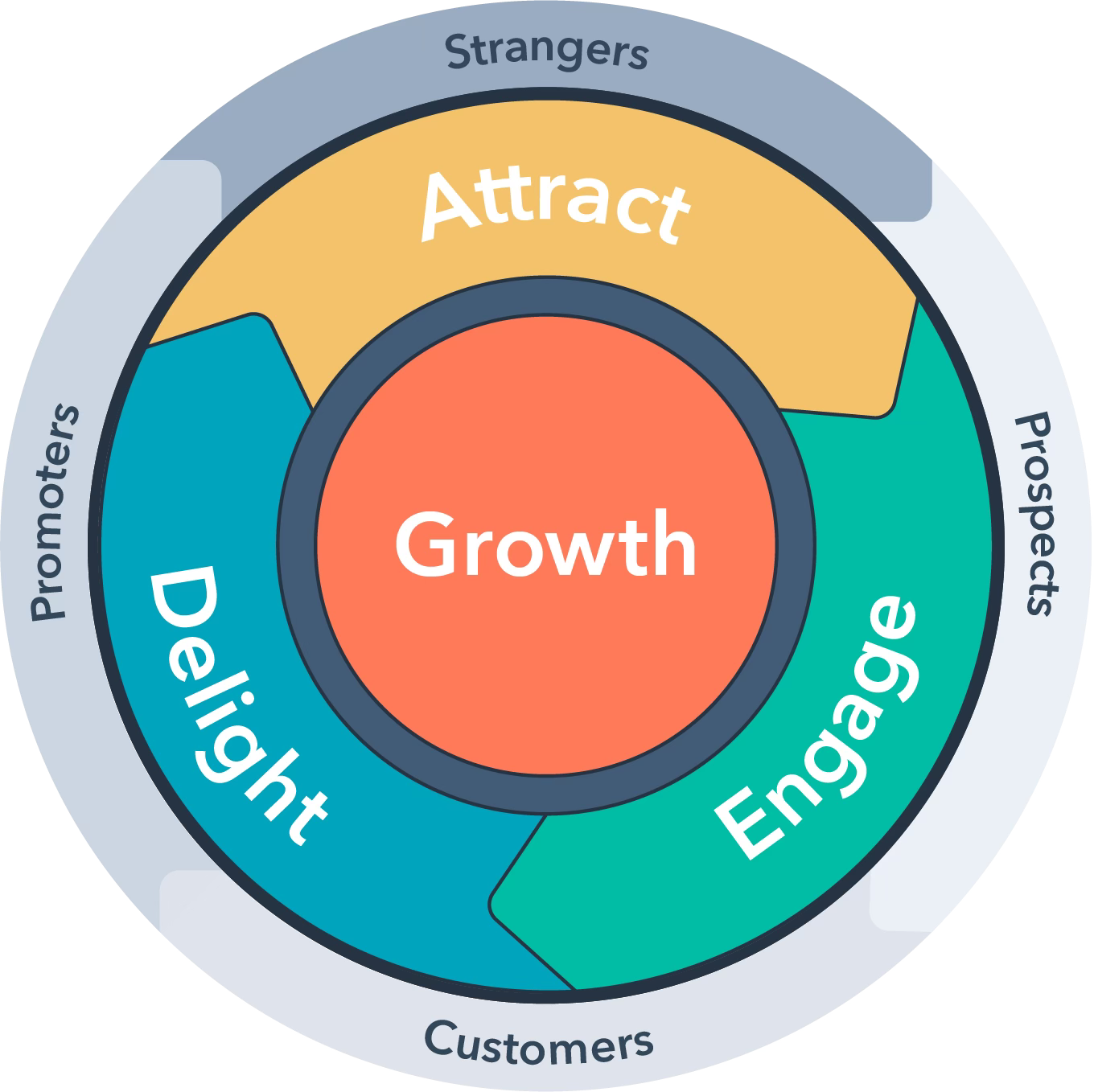Get on the Flywheel
Whether we like it or not, the future of entertainment is already here… filmmakers simply need to embrace it.
Last night, I was honored to attend a fireside chat with Kevin Mayer, Co-Founder and Co-CEO of Candle Media, hosted by the Paley Center for Media (Thanks Kevin Peraino and Reena Ninan). For those who don’t know, Kevin Mayer’s background is pretty amazing. As a senior executive at Disney he was significantly responsible for defining the direction of the company that led to the acquisitions of Pixar, 21st Century Fox and the Marvel and Star Wars franchises. As the chairman of Direct-to-Consumer & International, he led Disney’s global streaming business, including Disney+, Hulu, ESPN+ and Hotstar. He was also briefly the CEO of TikTok, as well as COO of its parent company ByteDance. Currently, he and his business partner, Tom Staggs, run the Blackstone-backed media company, Candle Media. Candle Media owns Reese Witherspoon’s Hello, Sunshine production shingle and the absolutely massive children’s entertainment network, Moonbug Entertainment. Moonbug is the media company behind Cocomelon, which is the third highest subscribed YouTube channel that has earned 198 billion views to date and has 191 million subscribers.
So Kevin, who also happens to be a very nice and funny guy, sat down for a conversation with Jenelle Riley, the Deputy Awards and Features Editor for Variety.
While Riley focused a fair amount of the chat on Mayer’s amazing history and lists of accomplishments - honestly, how could you not… the dude has done some pretty amazing stuff - the real meat of the conversation was centered around his compelling views on the future of entertainment. And Mayer was adamant - Whether we like it or not, the future of entertainment is not coming… it’s already here.
With all of the furor around the recent report from Deloitte - which showed that younger consumers prefer Social Media Content Creators over movie/TV stars, and are spending way less time consuming traditional formats like movies and TV shows, many filmmakers have been freaking out about the future. The idea that the people producing prank videos and make-up tutorials are more influential, earning more money and gobbling up the vast majority of the viewing hours for young consumers is frankly horrifying.
Sadly, this moment reminds me of something troubling from my past. Back in my music industry days, I sat right in the middle of the entire Digital Music debacle - when a revolutionary technology had dramatically shifted consumer behaviors away from the industry’s content silo. But rather than embracing the change, they simply covered their eyes and pretended it wasn’t happening. And guess what? The music industry that was once one of the most powerful forces in worldwide culture, became nothing more than vendors of “ones and zeros” to a couple of technology companies (Apple and Spotify, in case you were wondering).
So this is my warning to independent filmmakers. Don’t cover your eyes and pretend these shifts in consumer behavior aren’t happening. The big studios, and to a lesser extent the streamers, may struggle to adapt to these new realities. However, I firmly believe that Indie filmmakers have a chance to out maneuver the big players. But only if we quickly adapt.
——
The Flywheel - Content. Community. Commerce.
Let me start with something important. Every great revolution, every great opportunity is fraught with peril and always runs the risk of failure. It can seem overwhelming. I’ve heard it over and over, “Making movies and TV shows is already hard, and you’re telling me I also have to become a social media marketer and a distributor too?” Well… yes. That is what I’m saying. But, hopefully you’ll see that it’s not quite as scary as it sounds.
Mayer said that, in his opinion, Indie filmmakers need to embrace the “flywheel” approach to the business of entertainment. Ok… what is a flywheel? Popularized by Good to Great author, Jim Collins, a flywheel in business is defined as: Sustained, consistent effort in a specific direction that builds momentum, eventually leading to significant, self-reinforcing growth.
Marketing platform Hubspot uses this graphic and it is really clarifying.
In the context of entertainment, or more specifically, indie filmmaking, Mayer said that creators need to think of a flywheel that begins with CONTENT that builds a COMMUNITY which leads to COMMERCE.
My attempt at a definition of each, is this:
CONTENT - Social media content that brings people into the world. Content that lets them feel like part of the team, on the inside, invested. This may seem overwhelming, but remember, as a filmmaker, you are by definition a story teller. Use those skills to create engaging and compelling content that takes audiences along for a ride. Understand what formats of content work best on the different Social Media platforms and tailor your content for each. At the risk of getting a lot of moans and cries from the peanut gallery… you can almost think of your content like a short-form, reality TV show about the making of your project. Give people a window into the world, let them meet the personalities, show them what it’s really like, give them cliff hangers, etc. Make them crave the next post. Keep them coming back for more. Your still a filmmaker, of course. But don’t be afraid to be one who is making Social Media-powered Creator Economy content to attract followers. Which leads to…
COMMUNITY - I know this is obvious, but the goal here is to build followers. Or maybe a better way of saying it is, building an audience. The first time I really saw this work was pre-social media. MTV made a reality show about the making of Ashley Simpson’s (yes, the sister of Jessica Simpson) first record. The show was a massive hit, and that led to her debut record topping the charts almost immediately. The audience was invested. They wanted to hear the album, because they watched it being made. Recently, I’ve thrown this quote around a lot, but it really rings true in this context. Ryan Reynolds, who is inarguably one of the best social media marketers in the world, said last week, “Audiences want to have authorship over the success of something.” Making a community excited about your film or show not only increases the likelihood of viewership, but of their willingness to be “amplifiers” of your project. To recommend it to their friends. And that is critical, because 92% of consumers say they trust the recommendation of someone they follow online more than any advertisement. So building a community of evangelists for your project should be one of the most important things you do (besides making a great film/show, of course).
COMMERCE - This also may seem obvious, but this is referring to getting audiences to pay to watch your project. This can come in any form, whether a theatrical release, PVOD/TVOD or selling to to a streamer. Either way, the value of your film will be higher with a vibrant community surrounding it. Imagine this scenario. You have your film at a film festival and are meeting with distributors. Would you rather tell them that you have a film that no one has ever heard of that they will have to spend MILLIONS on to raise awareness, or that you have a film with a community of active and passionate fans clamoring to see it?
Think back to the diagram above. You create compelling Social Media content on a consistent basis (that is CRITICAL) to inform and attract people to your project. You engage with them on Social Media and give them a sense of propriety. A feeling of ownership. Then you delight them with your amazing project, which encourages them to tell the world, thus adding even more fans to your community… and so on. That’s the flywheel.
It can be easy to feel overwhelmed by all of this. I get it. It’s a lot. And for those who aren’t as experienced with Social Media, it seems like a really steep mountain to climb.
But, maybe you should look at it another way. The fact is, that even just a few years ago, this process would have been virtually impossible for an independent filmmaker. It would be much more likely that you would have faced a brutal road as you tried to convince the big gatekeepers that you have a project worth putting out into the world. If you were lucky enough to get the financing to produce something in the first place, the chance of getting it released, and more importantly, getting it released with a real marketing push would have been very low. And even if all of those things happened, the chance of it succeeding would have been infinitesimal. That’s just the truth. The math for indie film and TV has always sucked. But now, thanks to shifting consumer behaviors, advances in technologies and the wide open space that is the Creator Economy, Indie storytellers have an opportunity like never before. I firmly believe that the creators who embrace this truth now, while others a flailing, will be the real winners.
I think Mayer is right. The future of entertainment is already here.
What do you think? Are you ready to dive in, do the work and forge your own path to see your story get out to the world?



